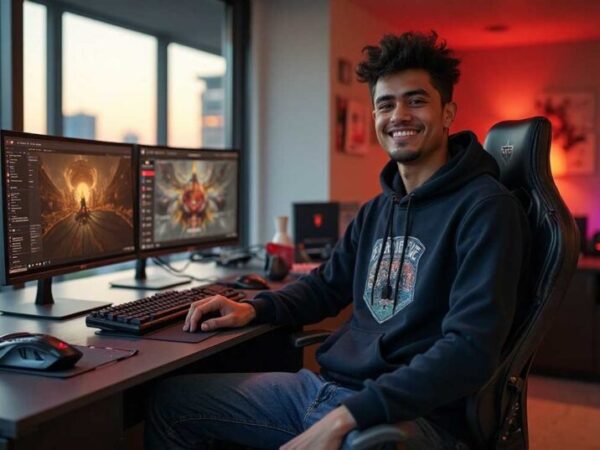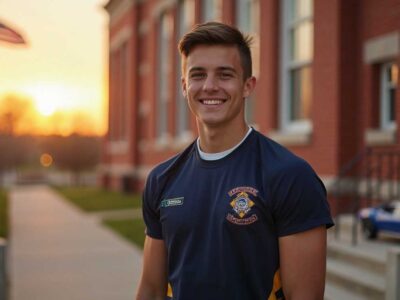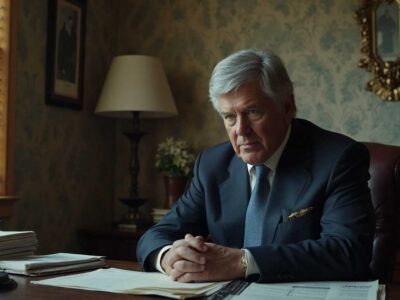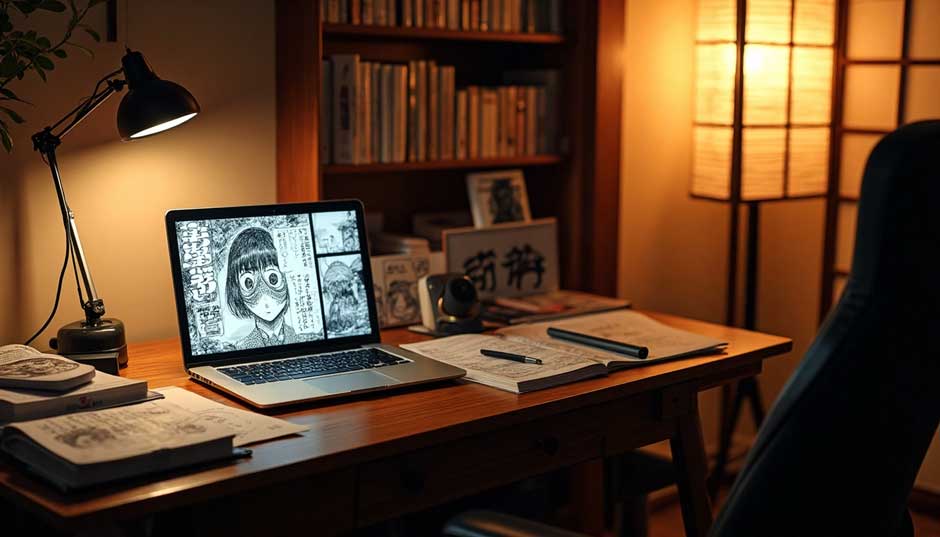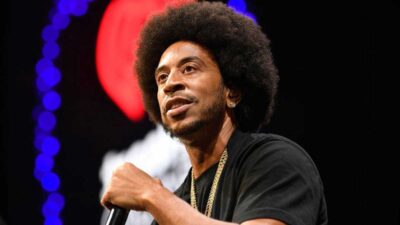When you think about actresses who truly embody the spirit of international cinema, Elena Rusconi immediately comes to mind. This talented Italian actress has built something remarkable—a career that spans continents and cultures, taking her from Milan’s historic theaters all the way to Hollywood’s biggest productions.
Her story isn’t your typical Hollywood tale. Born and raised between Milan and Florence, Elena has worked alongside major stars like Ryan Reynolds in Netflix’s action-packed “6 Underground.” These days, she’s making waves in the epic historical series “Rise of the Raven,” proving she’s one of Europe’s most exciting emerging talents.
But here’s what makes Elena Rusconi different from other actresses. She doesn’t just act—she lives and breathes different cultures. From studying classical acting in Italy to starting her own theater company in New York, she’s someone who refuses to stay in one box. That’s pretty rare in today’s entertainment world.
Early Life and Cultural Foundations
Elena Rusconi’s journey started in the best possible place for an aspiring actress—right in the heart of Italy’s cultural scene. Born in 1992, she grew up splitting time between Milan and Florence. If you know anything about these cities, you’ll understand why they shaped her so deeply.
She discovered acting when she was just eight years old. Most kids that age are playing with toys, but Elena was already taking acting classes. Her family saw something special in her, and they were right to encourage it.
Her training wasn’t some casual after-school activity either. She studied at Paolo Grassi and Teatro Carcano—these are serious institutions with real history. Paolo Grassi is where you learn everything from traditional Commedia dell’arte to modern European theater. It’s the kind of foundation that stays with you forever.
Teatro Carcano gave her something even more valuable—real professional experience. This theater has been around since the 1800s, hosting legendary performers for generations. Working there as a young person must have been incredible. You can imagine how it would inspire someone to dream bigger.
The Australian Chapter: Expanding Horizons
At sixteen, Elena made a choice that changed everything. She left Italy for Australia, joining an exchange program that took her to the Gold Coast and later Cairns. For someone who’d spent her whole life in European culture, this was like landing on another planet.
Australia has this unique way of life that’s completely different from Italy. Everything’s more relaxed, more outdoors-focused. People interact differently. For a teenager used to formal Italian culture, it must have been quite an adjustment.
But that’s exactly what made it so valuable. Living with Australian families, going to local schools—Elena had to figure out how to fit in somewhere completely new. The whole experience taught her that she could adapt to anything.
Looking back, she credits this time with giving her the confidence she’d need later in America. Australia showed her that being different wasn’t a disadvantage—it was actually a strength. That lesson would prove crucial when she started competing in Hollywood.
New York Dreams: The Stella Adler Years
After Australia, most people would have headed home to Italy. Not Elena. At eighteen, she had her sights set on New York City and the famous Stella Adler Studio of Acting. Talk about ambitious.
Moving to New York as a young Italian woman with shaky English? That takes serious guts. Elena admits her English was “still pretty bad” when she arrived. But instead of letting that stop her, she did something pretty extreme.
She cut herself off from everything Italian. No Italian friends, no Italian music, barely any calls home. It sounds harsh, but it worked. She was basically doing method acting with her own life.
Her approach to learning English was intense. She’d read plays and mark them up with phonetic notes. She got American friends to record her lines, then played them over and over until she could copy the accents perfectly. That’s dedication.
At Stella Adler Studio, she found herself surrounded by America’s most talented young actors. The training there focuses on emotional truth and authentic character work—perfect for someone with her classical background. Her first big American role was Miranda in “The Tempest,” which felt pretty perfect. Miranda discovers a “brave new world,” just like Elena was doing in America.
Breaking into Film and Television
Making the jump from theater to screen isn’t easy for any actor, but Elena’s international background actually helped her stand out. Her big break came with a role that would put her right next to some of Hollywood’s biggest names.
“6 Underground” was her entry into major filmmaking. Working with director Michael Bay and star Ryan Reynolds taught her things you can’t learn in acting school. Bay’s style is all about energy and instinct—no time to overthink anything. As Elena puts it, “Michael Bay films are so fast-paced that you don’t have time to overthink.”
Ryan Reynolds brought his own challenges. The guy’s famous for improvising and being incredibly quick-witted. Elena had to stay on her toes constantly, which made her a better actress. Those skills would serve her well in everything that followed.
Her TV work showed even more range. “Medici: The Magnificent” on Netflix let her dive into period drama, drawing on her deep knowledge of Italian history. For someone raised among the actual palaces where these events happened, it must have felt like coming home.
“The Catch” on ABC proved she could handle contemporary crime drama just as well. Each project added something new to her toolkit. Action, historical drama, modern crime—Elena was proving she could do it all.
Rise of the Raven: A Career-Defining Role
Elena’s biggest project yet is “Rise of the Raven,” which Variety called “one of the most epic European productions of all time.” This historical series tells the story of János Hunyadi, a 15th-century Hungarian leader who shaped European history.
Elena plays Giulietta Di Brienza, a woman caught between powerful men during medieval times. It’s not an easy role—Giulietta has to survive in a world where women had very few options. As Elena explains it, “She’s caught between two powerful men, Hunyadi and her uncle, at a time when being a woman came with countless challenges.”
The character required serious research. Elena had to understand how medieval women actually lived and what strategies they used to survive. Giulietta isn’t just a victim—she’s someone who learns to use her intelligence and understanding of power to stay alive.
Filming in Budapest added another layer of authenticity. The city’s architecture provided the perfect backdrop for medieval Europe. Working with director Robert Dornhelm, who has decades of international experience, gave Elena the chance to refine her craft even further.
The production scale was massive—multilingual cast, historically accurate sets, the works. When Elena saw the first episode premiere at Cannes, she was blown away. “It truly lives up to being called epic,” she said. “The mix of languages and its historical authenticity make it unforgettable.”
Beyond Acting: Theater Production and Future Vision
Elena isn’t content just being an actress. As co-founder of Little Engine Theater in New York, she’s working to change how international voices are represented in American theater.
The idea came from what she noticed was missing in New York’s theater scene. Despite being this incredible melting pot, many cultures still weren’t getting their stories told on stage. Elena wanted to fix that.
“I was lucky to see so many great plays after I moved to New York, but I always felt that many cultures weren’t being represented,” she explains. Little Engine Theater exists to give international playwrights a real platform for their work.
Her approach to producing comes from her experience as a performer. She knows how tough an actor’s life can be, especially in theater. That’s why Little Engine Theater makes fair compensation a priority. It’s not just about the art—it’s about treating artists right.
The theater keeps productions intimate and personal. Elena believes that’s where theater’s real power lies—in those direct connections between performers and audiences. In our digital world, that kind of immediacy is more valuable than ever.
Looking ahead, Elena represents something new in the entertainment industry. She’s proof that being international isn’t a limitation—it’s an advantage. Her success shows that authenticity and cultural diversity are exactly what audiences want.
Her journey from Milan’s classical theaters to Hollywood’s film sets shows what’s possible when talent meets determination. In an industry that can be pretty insular, Elena Rusconi proves that the best stories often come from people brave enough to cross borders in pursuit of their dreams.





